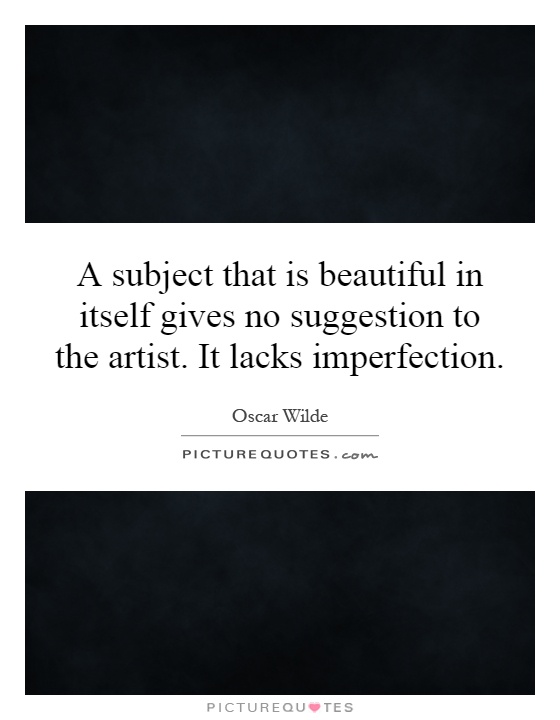A subject that is beautiful in itself gives no suggestion to the artist. It lacks imperfection

A subject that is beautiful in itself gives no suggestion to the artist. It lacks imperfection
Oscar Wilde, the renowned Irish playwright, poet, and author, was known for his wit, charm, and unique perspective on art and beauty. One of his most famous quotes, "A subject that is beautiful in itself gives no suggestion to the artist. It lacks imperfection," speaks to Wilde's belief that true artistry lies in finding beauty in imperfection.Wilde believed that true artistry comes from the ability to see beyond the surface beauty of a subject and to find the imperfections that make it truly unique and interesting. In his view, a subject that is already beautiful in itself does not challenge the artist to dig deeper and explore the complexities and nuances that lie beneath the surface. It is the imperfections, the flaws, the quirks that give a subject character and depth, and it is these imperfections that inspire the artist to create something truly original and meaningful.
Wilde's own works are a testament to his belief in the power of imperfection. In his plays, such as "The Importance of Being Earnest" and "Lady Windermere's Fan," Wilde explores the complexities of human nature, the contradictions and flaws that make us who we are. His characters are not perfect, but it is their imperfections that make them relatable and compelling.
Wilde's poetry also reflects his fascination with imperfection. In his poem "The Ballad of Reading Gaol," Wilde explores themes of suffering, redemption, and the human capacity for both good and evil. The poem is a meditation on the imperfections of the human condition, and it is through these imperfections that Wilde finds beauty and meaning.












 Friendship Quotes
Friendship Quotes Love Quotes
Love Quotes Life Quotes
Life Quotes Funny Quotes
Funny Quotes Motivational Quotes
Motivational Quotes Inspirational Quotes
Inspirational Quotes